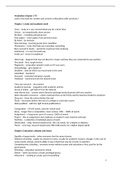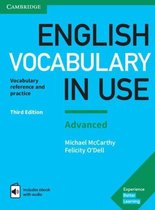Samenvatting
Summary English Vocabulary in Use Advanced - Chapter 1-75
- Vak
- Vocabulary
- Instelling
- Hogeschool Arnhem En Nijmegen (HAN)
Uitgetypte overzichtelijke versie van hoofdstuk 1-75 uit het boek English Vocabulary in Use Advanced. Handig voor de allebei de vocab tentamens van leerjaar 1 op de HAN en het eerste tentamen van leerjaar 2.
[Meer zien]





